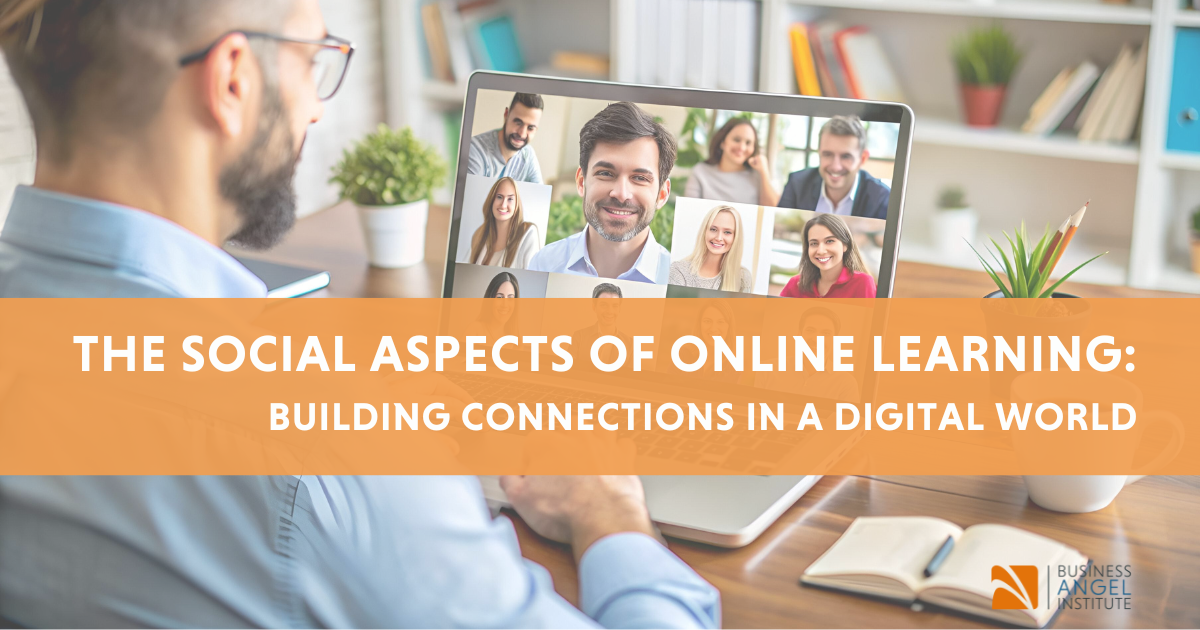Understanding the social aspects of eLearning is crucial for creating engaging and supportive online learning environments that foster meaningful interactions and community building.
Building Community and use collaborative Aspects of Online Learning
Online learning platforms have transformed education by creating unique opportunities for community building and collaboration. One key advantage is the ability to connect with peers from around the globe through discussion forums, virtual study groups, and collaborative projects. These tools foster peer-to-peer learning and help build meaningful connections among students. For instance, group projects enable learners to work together, exchange ideas, and tackle challenges collectively, mimicking some of the social interactions found in traditional classrooms.
Furthermore, many online learning platforms incorporate features like social media integration and virtual networking events. These features allow students to engage with industry professionals, participate in webinars, and attend virtual meetups. Such interactions enrich the learning experience by providing real-world insights and fostering professional relationships that can be valuable in future career pursuits.
Enhancing Social Interaction and Support Systems
Social interaction and robust support systems are critical for online learners’ success and well-being. To address the challenge of social isolation, online instructors are employing various strategies to create supportive learning communities. These strategies include live video conferences, where students can participate in real-time discussions, and breakout rooms for smaller group interactions. These tools help recreate the social aspects of in-person learning environments and provide opportunities for students to build rapport and collaborate.
Online platforms also offer dedicated spaces for mentorship and peer support. Many programs include features like mentorship matching, where experienced learners or professionals guide newcomers. Peer support groups, often facilitated by instructors, offer a space for students to share experiences, seek advice, and offer encouragement. Additionally, platforms provide access to counseling services and wellness resources to help students manage stress and maintain a healthy work-life balance.
Fostering a Sense of Belonging
Creating a sense of belonging is essential for online learners. To address this, many online learning environments are designed to be inclusive and welcoming. This includes offering various ways for students to engage and express themselves, such as through discussion boards, blogs, and project showcases. Such platforms encourage students to contribute their unique perspectives and feel valued within the learning community.
Institutions are also implementing social learning theories to enhance engagement. For example, some online courses use gamification elements, like leaderboards and achievement badges, to motivate students and create a sense of competition. These elements can help build a community spirit and keep learners engaged by adding an element of fun to the learning process.
Overcoming Technological and Accessibility Barriers
While online learning offers many benefits, it also presents challenges related to technology and accessibility. To ensure that all learners can participate fully, platforms invest in user-friendly interfaces and mobile-responsive designs. These features make it easier for students to navigate courses and access materials from various devices.
Moreover, assistive technologies play a crucial role in making education more inclusive. Tools such as screen readers, captioning services, and customizable text options help students with disabilities engage more effectively with course content. Collaborations with internet service providers also aim to improve connectivity in remote areas, ensuring that all students have equitable access to educational resources.
Social Aspects of eLearning at a glance
Online learning has revolutionized education, offering unparalleled flexibility and access to diverse learners while fostering community and collaboration. Though challenges like social isolation and technological barriers exist, advancements in curriculum design and social support systems are addressing these issues effectively. As technology continues to evolve, online learning will further innovate and shape the future of education, providing immersive and supportive experiences for learners worldwide.
Join Our Online Master Class “Startup Investment & Venture Capital”
Ready to elevate your investment skills? Enroll in our Online Master Class “Startup Investment & Venture Capital,” in collaboration with the Pioneer Lab of Hochschule Fresenius. Gain exclusive insights from seasoned experts and learn strategies for successful startup investment. Click here to discover more and secure your spot today!



